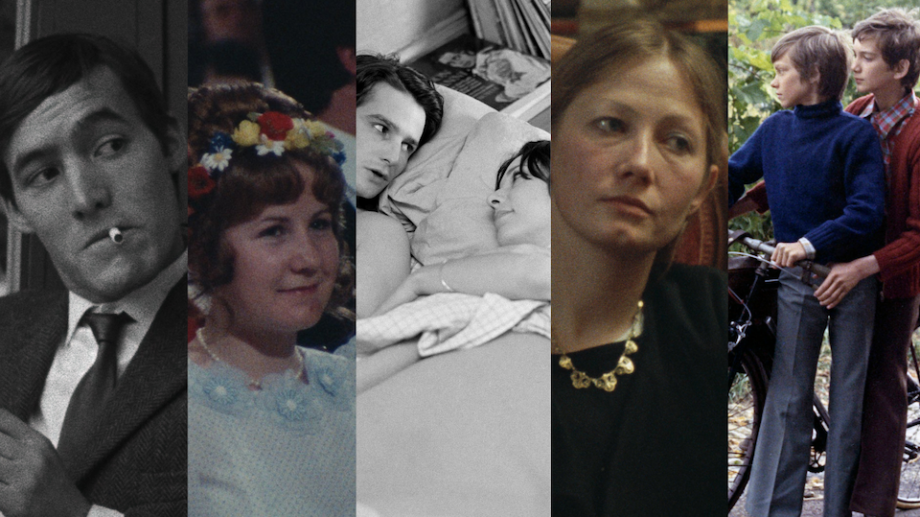Film at Lincoln Center and Janus Films announce “The Dirty Stories of Jean Eustache,” a 12-film retrospective of the director’s work, from July 7–13. A 4K restoration of Eustache’s The Mother and the Whore will have a three-week theatrical run at Film at Lincoln Center June 23–July 13.
Few filmmakers have captured the sheer sorrow and humor of being alive in a time and place more majestically than Jean Eustache. A fellow traveler of Cahiers du Cinéma’s Hitchocko-Hawksians in the late 1950s, Eustache was a satellite figure of the ascendant Nouvelle Vague while it was revolutionizing the aesthetics and aesthetic politics of narrative cinema. But he emerged in the second half of the 1960s as a singularly formidable filmmaker in his own right, directing several medium-length fiction films and documentaries before producing one of French cinema’s all-time masterpieces, the titanic and epochal The Mother and the Whore (1973).
Eustache’s career would continue with more sporadic, always fascinatingly idiosyncratic efforts in the years to come (including the achingly, heartbreakingly beautiful My Little Loves [1974]), before his suicide in 1981. A true pioneer of autobiographical cinema, Eustache’s influence has been sharply felt in the years since—particularly in the work of Léos Carax, Jim Jarmusch, Philippe Garrel, and Noah Baumbach, to name a few—and yet his oeuvre has historically been difficult for American audiences to access. On the occasion of new restorations of Eustache’s work being made available by Janus Films, join Film at Lincoln Center as we celebrate the life and career of one of cinema’s great enfants terribles with an extensive retrospective for the cynical saint of autofiction.
Additional films in the retrospective include: Robinson’s Place, Eustache’s first completed film, which follows two aimless young men who prowl the bars and dance halls of Paris in futile pursuit of female companionship; Santa Claus Has Blue Eyes, Eustache’s second narrative short, starring French New Wave icon Jean-Pierre Léaud as Daniel, a young man who finds it easier to meet and talk to women while in costume as a department store Santa Claus; Eustache’s first documentary, The Virgin of Pessac, chronicling an annual pageant in which the village crowns the director’s town’s most virtuous young girl; Le cochon, co-directed with Jean-Michel Barjol, documenting the slaughter of a pig and its subsequent conversion into sausages in classic cinéma vérité fashion; Numéro Zéro, a sit-down conversation between Eustache and his grandmother Odette Robert, a key figure in his life and substitute mother, about the harshness of her rural upbringing (never shown publicly in its full form during Eustache’s lifetime); My Little Loves, Eustache’s second feature and autobiographical coming-of-age tale about Daniel (Martin Loeb), a young boy who lives happily with his grandmother in rural France, only to be uprooted and moved to Narbonne to live with his mother; A Dirty Story, a formally and narratively transgressive radical experiment, presenting two versions of the same event, in which a group of women listen to a man describe his discovery of a peephole in a women’s restroom; and The Virgin of the Pessac ’79, a “remake” of the director’s first documentary, again filming the town’s annual pageant to crown its most virtuous young woman while emphasizing what had (and had not) changed over the subsequent decade.
Three shorts rounding out the program are Alix’s Pictures, Eustache’s experimental short that shows the photographer Alix Cléo Roubaud displaying and describing a series of her photographs to Eustache’s son, Boris; Le Jardin des Délices, Jean-Noël Picq’s description of Hieronymus Bosch’s most emblematic painting; and Offre d’emploi, which was commissioned by the INA (National Audiovisual Institute) on the theme of the labor market, which Eustache takes pleasure in diverting.
The Dirty Stories of Jean Eustache will tour in select North American cities following its North American premiere at Film at Lincoln Center.
Acknowledgements:
In partnership with Janus Films, with special thanks to Les Films du Losange
Tickets will go on sale on Thursday, June 1 at noon, with an early access period for FLC Members starting Wednesday, May 31 at noon. Tickets are $17; $14 for students, seniors (62+), and persons with disabilities; and $12 for FLC Members. See more and save with a 3+ Film Package ($15 for GP; $12 for students, seniors (62+), and persons with disabilities; and $10 for FLC Members).
This retrospective is also eligible for our $30 dinner and a movie combo at Café Paradiso, located in FLC’s Elinor Bunin Munroe Film Center. Learn more here.
FILMS & DESCRIPTIONS
Films will screen at the Walter Reade Theater (165 W. 65th St) or the Elinor Bunin Munroe Film Center (144 W. 65th St). All films will screen in French with English subtitles.
Robinson’s Place
Jean Eustache, 1963, France, 42m
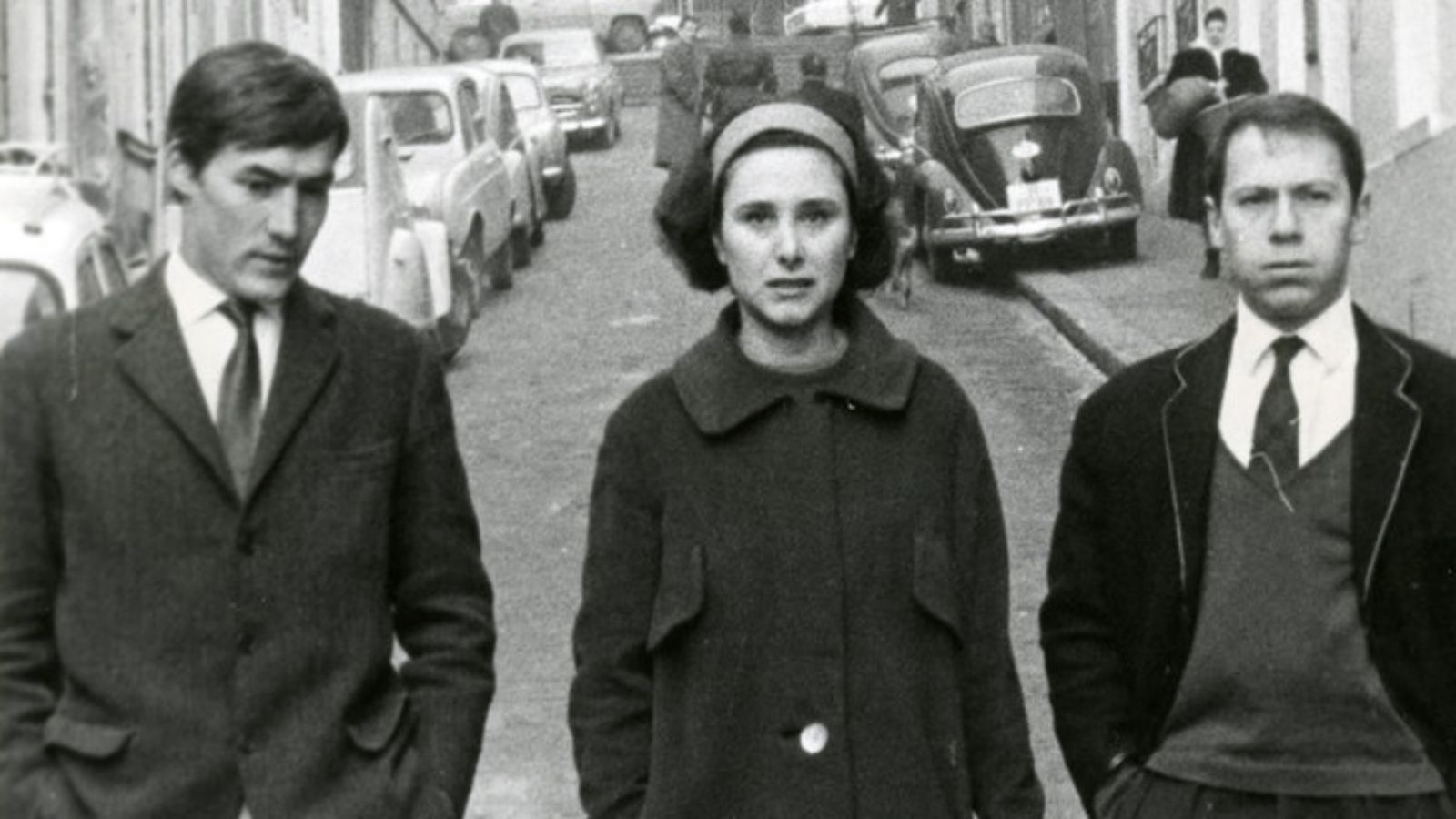
Robinson’s Place.
Eustache’s first completed film follows two aimless young men who prowl the bars and dance halls of Paris in futile pursuit of female companionship. When one of their ostensible conquests spurns them, they plot petty revenge.
Followed by:
Santa Claus Has Blue Eyes
Jean Eustache, 1966, France, 47m
Eustache’s second narrative short stars French New Wave icon Jean-Pierre Léaud as Daniel, a young man who finds it easier to meet and talk to women while in costume as a department store Santa Claus.
Saturday, July 8 at 3:45pm
Wednesday, July 12 at 7:15pm
The Virgin of Pessac
Jean Eustache, 1968, France, 65m
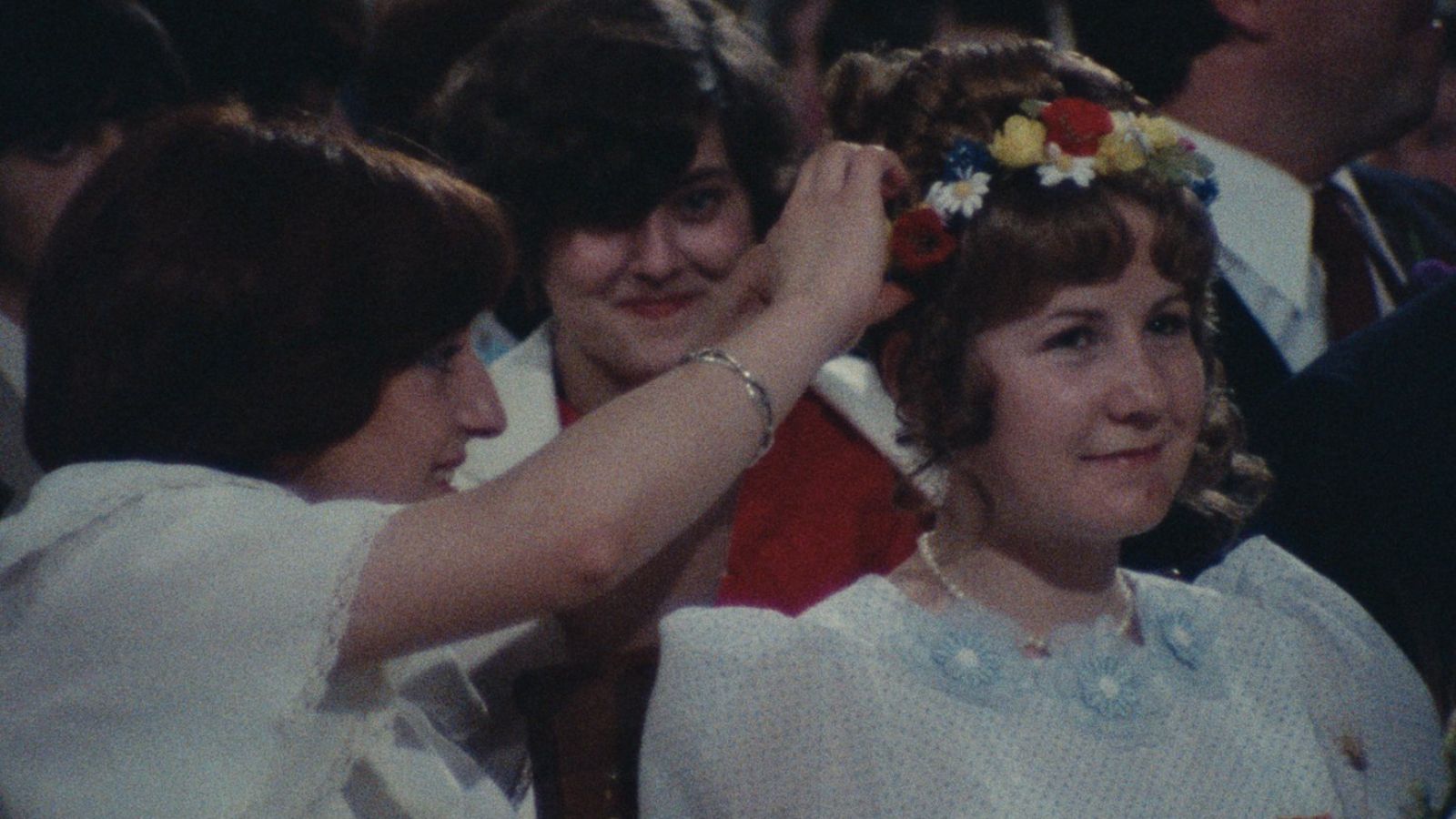
The Virgin of Pessac.
For his first documentary, Eustache returned to his hometown to document an annual pageant in which the village crowns the town’s most virtuous young girl.
Sunday, July 9 at 3:45pm
Thursday, July 13 at 3:45pm
Le Cochon
Jean Eustache, 1970, France, 52m
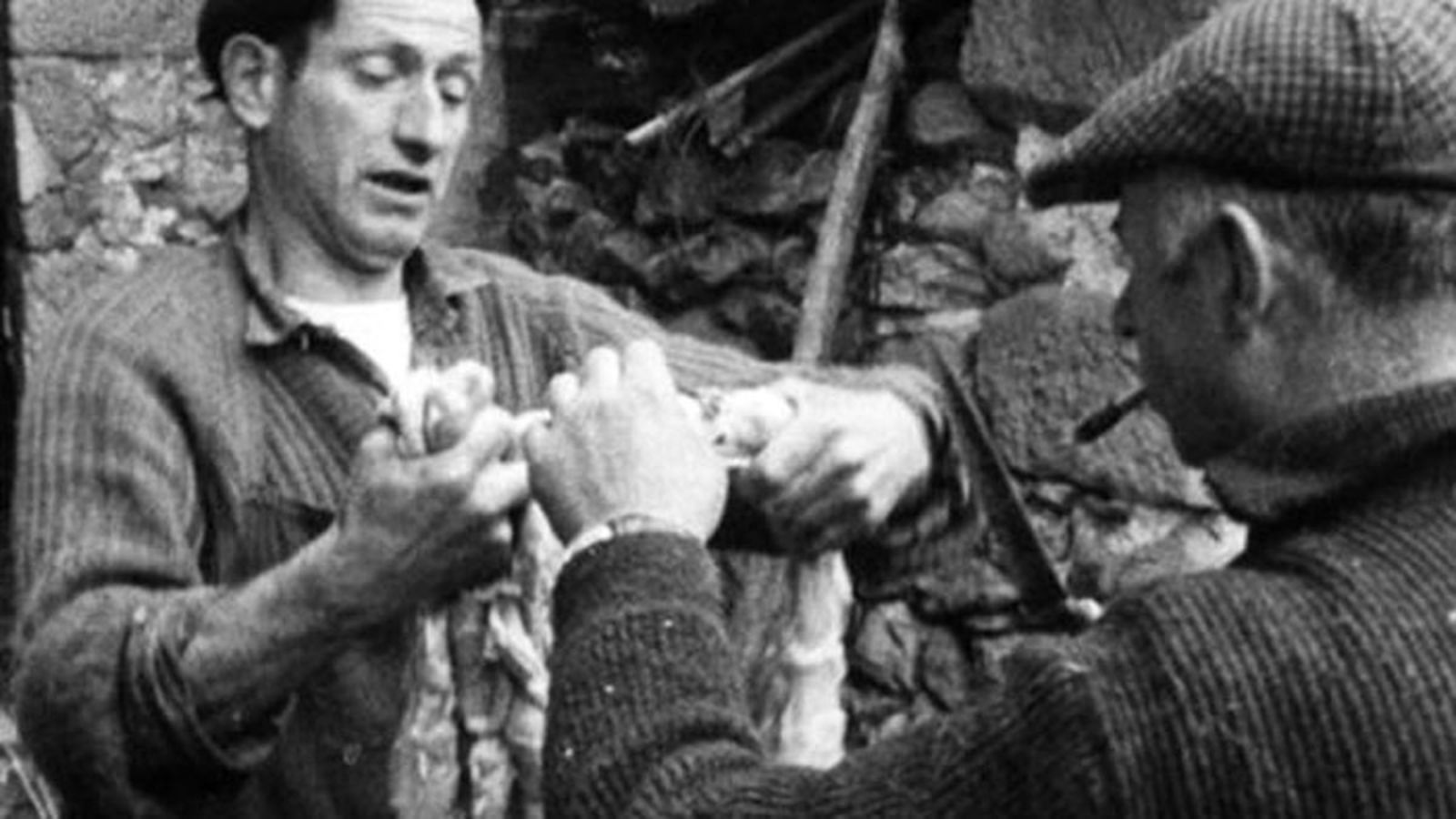
Le Cochon.
Having been shot in a local dialect, this film is without subtitles.
Co-directed with Jean-Michel Barjol, Eustache’s Le cochon documents, in classic cinéma vérité fashion, the slaughter of a pig and its subsequent conversion into sausages on a small French farm in the Massif Central.
Sunday, July 9 at 8:00pm
Wednesday, July 12 at 6:00pm
Numéro Zéro
Jean Eustache, 1971, France, 110m

Numéro Zéro.
In Numéro zéro, Eustache sits down with his grandmother Odette Robert—a key figure in his life and a substitute mother during his youth—for a feature-length conversation across a kitchen table. The two discuss the harshness of her rural upbringing, her troubled marriage, the deaths of her children, and the deprivations of World Wars I and II. The film was truncated to one hour for French television and never shown publicly in its full form during Eustache’s lifetime; the full version of Numéro zéro was rediscovered and reconstructed in 2002.
Friday, July 7 at 8:45pm
Sunday, July 9 at 5:30pm
The Mother and the Whore
Jean Eustache, 1973, France, 219m
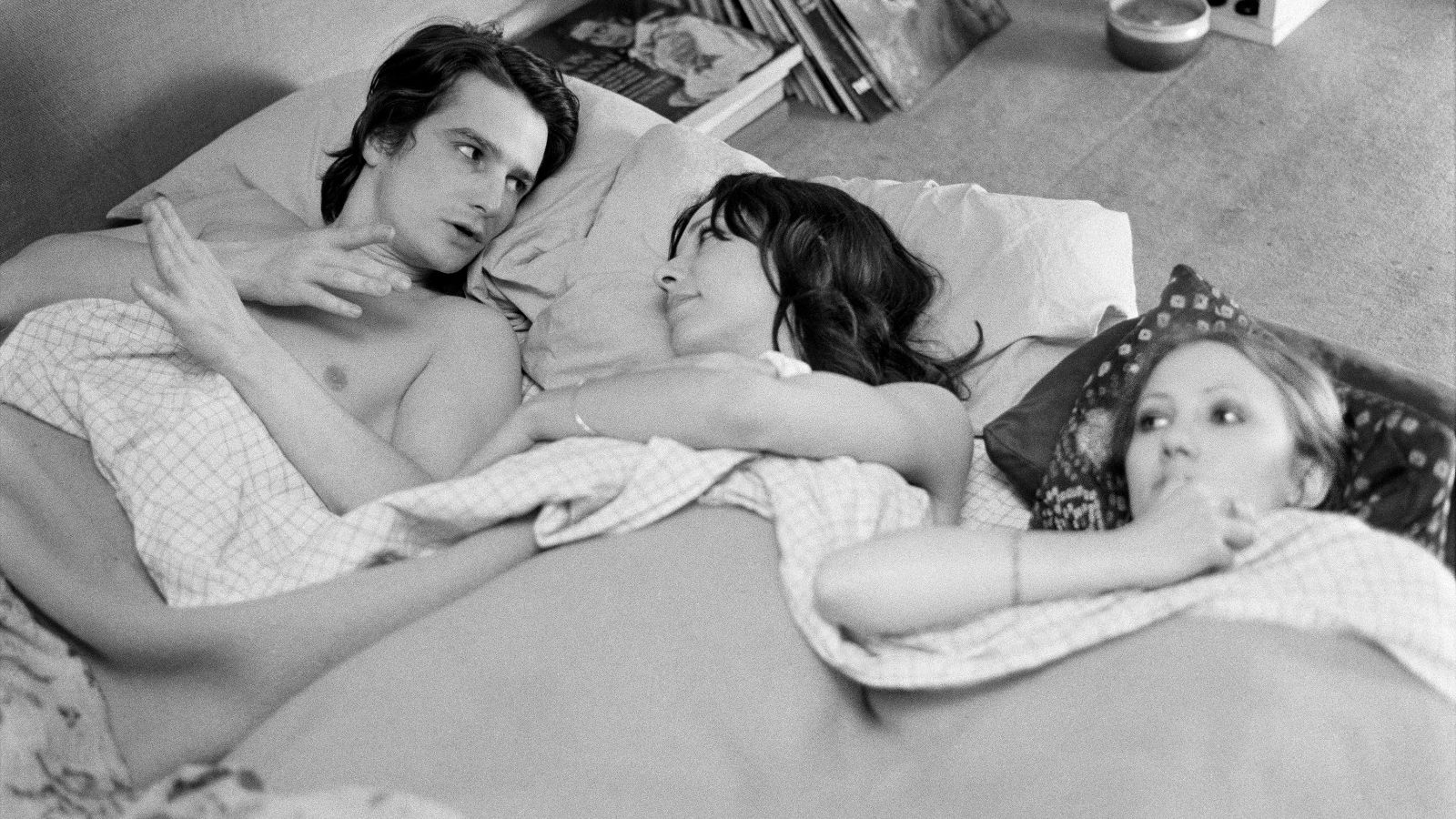
The Mother and the Whore. Courtesy of Janus Films.
After the French New Wave, the sexual revolution, and May 1968 came The Mother and the Whore, the legendary, autobiographical magnum opus by Eustache that captured a disillusioned generation navigating the post-idealism 1970s within the microcosm of a ménage à trois. The aimless, clueless, Parisian pseudo-intellectual Alexandre (Jean-Pierre Léaud) lives with his tempestuous older girlfriend, Marie (Bernadette Lafont), and begins a dalliance with the younger, sexually liberated Veronika (Françoise Lebrun, Eustache’s own former lover), leading to a volatile open relationship marked by everyday emotional violence and subtle but catastrophic shifts in power dynamics. Transmitting his own sex life to the screen with startling immediacy, Eustache achieves an intimacy so deep it cuts.
The Mother and the Whore has been restored and remastered in 4K in 2022 by Les Films du Losange with the support of CNC and the participation of Cinémathèque Suisse and of Chanel. Image restoration by L’Immagine Ritrovata/Éclair Classics, supervised by Jacques Besse and Boris Eustache. Sound restoration by Léon Rousseau-L.E. Diapason.
Screens daily at 1pm & 6pm in the Walter Reade Theater from June 23–July 6 and in the Francesca Beale Theater from July 7–13.
My Little Loves
Jean Eustache, 1974, France, 123m
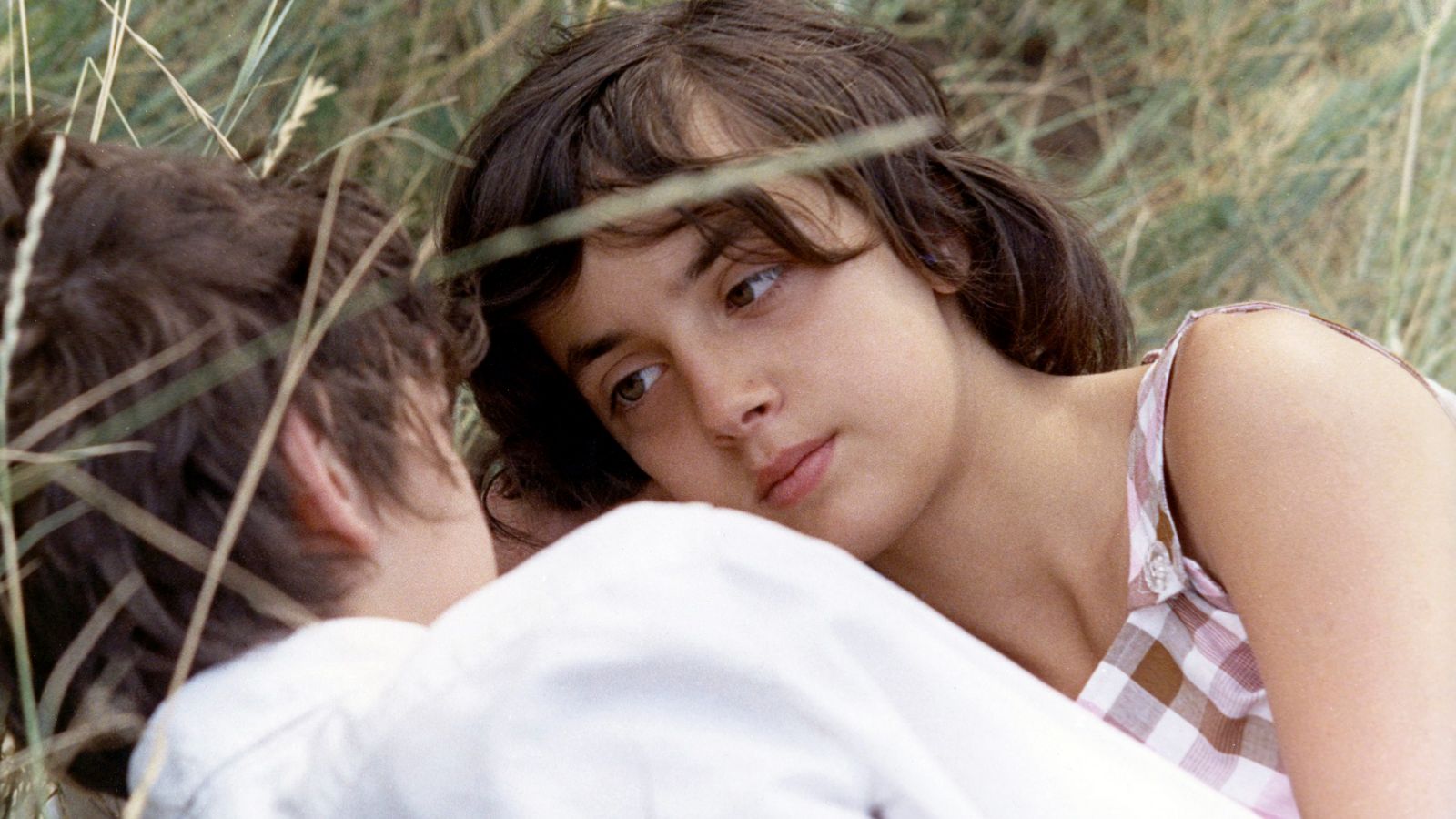
My Little Loves. Courtesy of Janus Films.
Eustache’s second feature is an autobiographical coming-of-age tale about Daniel (Martin Loeb), a young boy who lives happily with his grandmother in rural France, only to be uprooted and moved to Narbonne to live with his mother. Hanging out with older boys and discovering (and pursuing) girls, Daniel comes to several painful revelations about life, love, and sex before returning to visit his grandmother the following year. Beautifully shot in color by Nestor Almendros, My Little Loves is as powerful and unsentimental a portrait of adolescent male angst as anything by Truffaut or Pialat.
My Little Loves has been digitally restored and remastered in 4K in 2022 by Les Films du Losange, with the support of CNC and the contribution of La Cinémathèque Suisse. The image restoration was done by L’Immagine Ritrovata/Éclair Classics, under the supervision of Jacques Besse. Sound restoration was signed by Léon Rousseau – L.E. Diapason.
Friday, July 7 at 6:00pm
Saturday, July 8 at 7:00pm
Tuesday, July 11 at 6:00pm
A Dirty Story
Jean Eustache, 1977, France, 50m
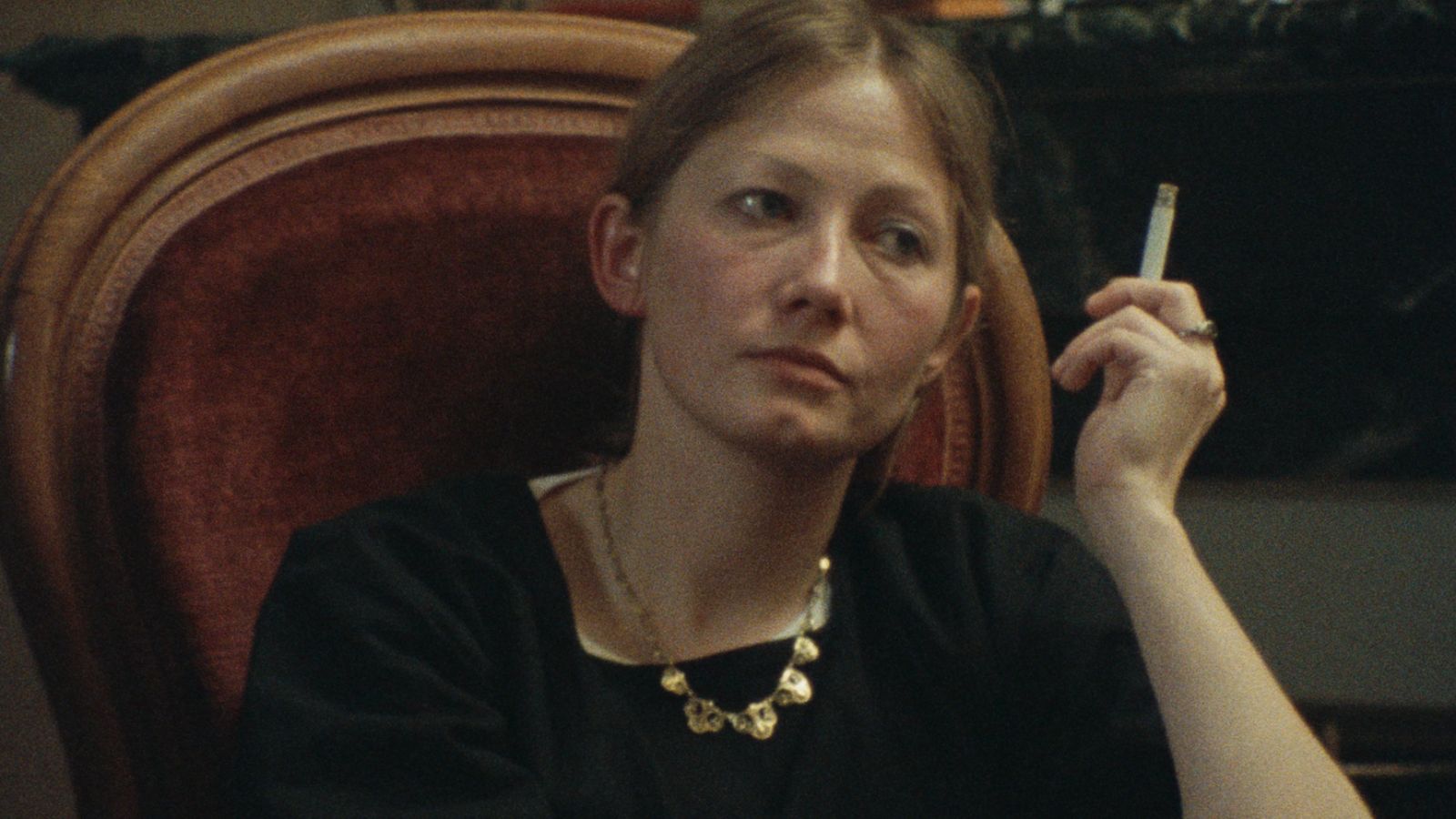
A Dirty Story. Courtesy of Janus Films.
One of Eustache’s most radical experiments, the formally and narratively transgressive A Dirty Story presents two versions of the same event, in which a group of women listen to a man describe his discovery of a peephole in a women’s restroom. One is a “true” monologue delivered by the actual participant (Eustache’s friend and collaborator Jean-Noël Picq); the other a staged recreation of Picq’s performance starring Michael Lonsdale. Further muddying the waters between documentary and fiction, Eustache preferred that the “fictional” version be shown first.
Saturday, July 8 at 5:45pm
Tuesday, July 11 at 8:45pm
The Virgin of the Pessac ’79
Jean Eustache, 1979, France, 71m
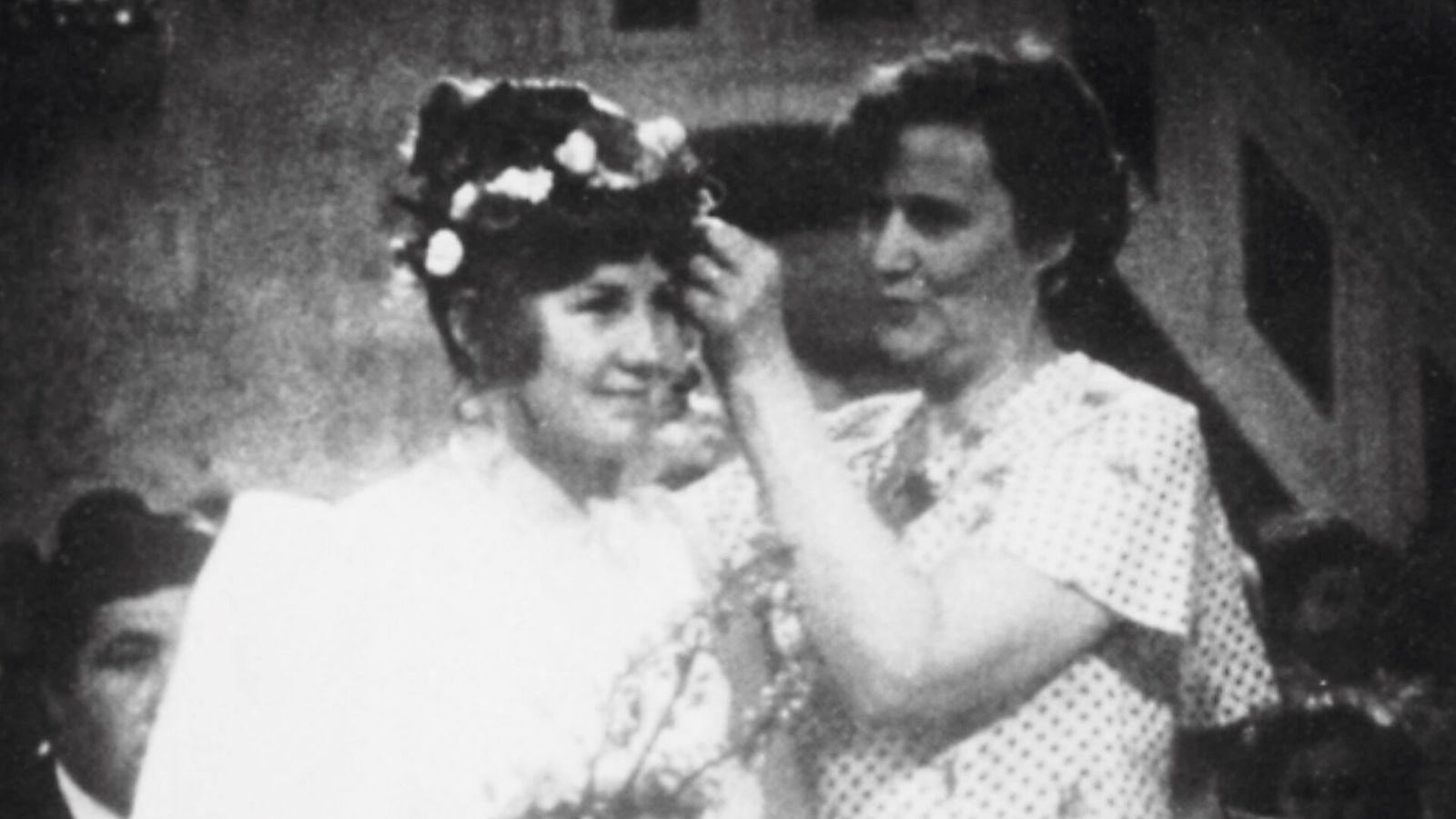
The Virgin of the Pessac ’79.
In 1979, Eustache returned to Pessac to “remake” his first documentary, again filming the town’s annual pageant to crown its most virtuous young woman while emphasizing what had (and had not) changed over the subsequent decade.
Sunday, July 9 at 2:00pm
Thursday, July 13 at 2:00pm
SHORTS PROGRAM
Jean Eustache, France, 1979-1980, 76m
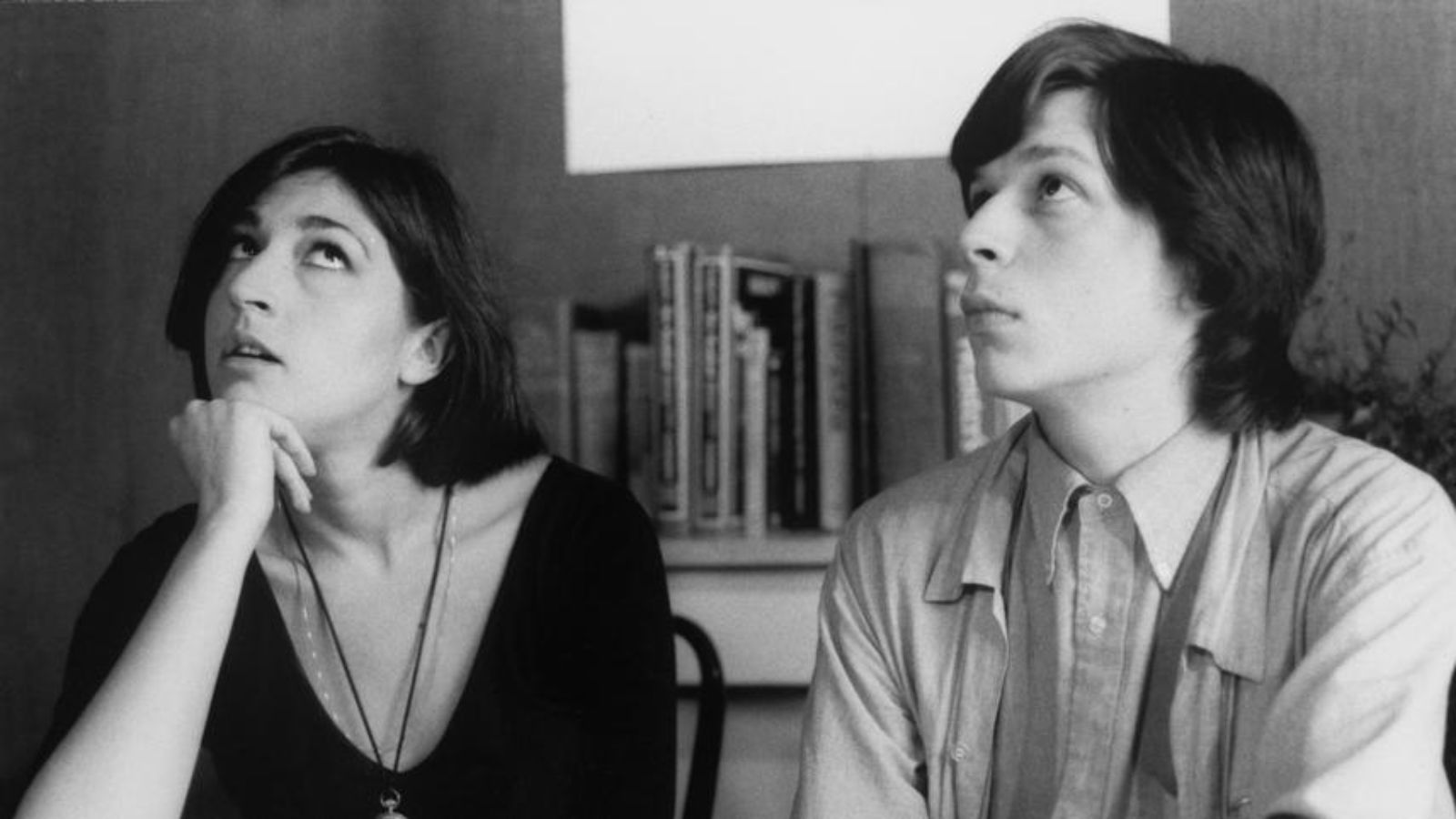
Alix’s Pictures.
Le Jardin des Délices de Jerome Bosch
Jean Eustache, 1979, France, 35m
Hieronymus Bosch’s most emblematic painting is described by Jean-Noël Picq.
Alix’s Pictures
Jean Eustache, 1980, France, 20m An “essay in the shape of a hoax,” Eustache’s experimental short shows the photographer Alix Cléo Roubaud displaying and describing a series of her photographs to Eustache’s son, Boris. In a riff on Hollis Frampton’s Nostalgia that calls back to Eustache’s career-long experiments with representation and reality, Cléo Roubaud’s narration becomes increasingly out of sync with the imagery on-screen.
Offre d’emploi
Jean Eustache, 1980, France, 21m
Unaware of an employer’s recruitment methods, a man is looking for a job. The film was commissioned by INA on the theme of the labor market, which Eustache takes pleasure in diverting.
Saturday, July 8 at 2:00pm
Wednesday, July 12 at 9:15pm


